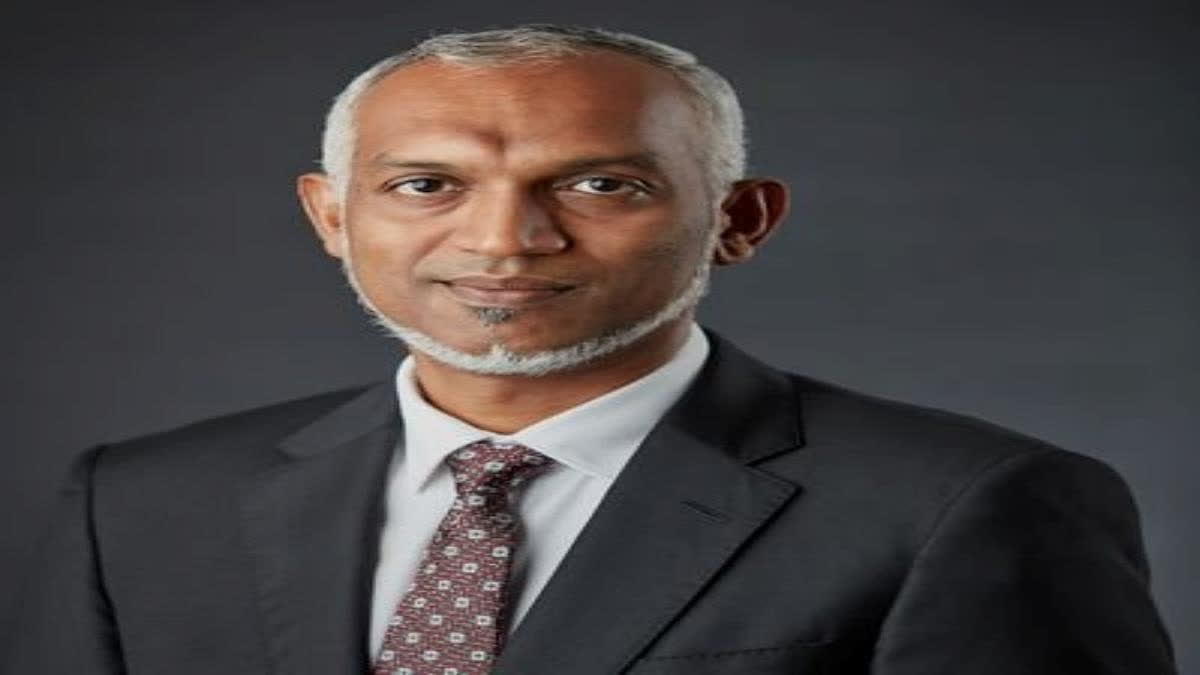New Delhi:Though Mohamed Muizzu won the Presidential election in the Maldives this year on the campaign of ousting Indian troops present in the Indian Ocean archipelago nation because they posed a “threat to national security”, his office till date does not have the exact number of such troops. The President’s Office has also come to realise that the few Indian military personnel present do not pose any threat to the Maldives’ national security.
This was evident from the remarks made by Mohamed Shahyb, the chief spokesperson of the President’s Office, during a press conference on Thursday. According to a report in the Maldivian news website raajje.mv, Shahyb had said that the exact number of Indian military personnel present in the Maldives will be clarified during the press conference.
“At the press conference, which went on for more than an hour, a journalist questioned Shahyb on why they had not received details, even after an hour had passed,” the report stated. “Shahyb responded that they were aware that the number is currently at 89. However, it was not verified. Shahyb noted that being unable to verify this figure, did not pose a threat to national security.”
It has been over a month since the President assumed office. But to date, his government still does not know the exact number of Indian troops present in the country. Pro-China Muizzu carried out his Presidential election campaign on the plank of an ‘India out’- later ‘Indian military out’ – campaign and defeated incumbent President Ibrahim Solih, who is known for his ‘India first’ policy.
Muizzu and his teams had claimed that the number of Indian military personnel in the Maldives exceeded 1,000. Muizzu had said that the priority after he assumed office would be the pullout of the Indian troops. However, shortly after he assumed office, his administration said that 77 military personnel from neighbouring India were present in the Maldives. Now, after Shahyb’s remarks, that figure has also come under doubt.
As part of New Delhi’s Neighbourhood First Policy, the Maldives is strategically significant to India because of its location in the Indian Ocean. India and the Maldives share ethnic, linguistic, cultural, religious, and commercial links steeped in antiquity and enjoy close, cordial, and multi-dimensional relations. However, regime instability in the Maldives since 2008 has posed significant challenges to the India-Maldives relationship, particularly in the political and strategic spheres.
Ties between India and the Maldives deteriorated significantly when pro-China Abdulla Yameen served as the President between 2013 and 2018. It was only after Solih came to power in 2018 that ties between New Delhi and Male improved. Although India continues to be an important partner of the Maldives, New Delhi cannot afford to be complacent over its position and must remain attentive to the developments in the Maldives. India must play a key role within the Indo-Pacific security space to ensure regional security in South Asia and surrounding maritime boundaries. China’s strategic footprint in India’s neighbourhood has increased. The Maldives has emerged as an important ‘pearl’ in China’s ‘String of Pearls’ construct in South Asia.
